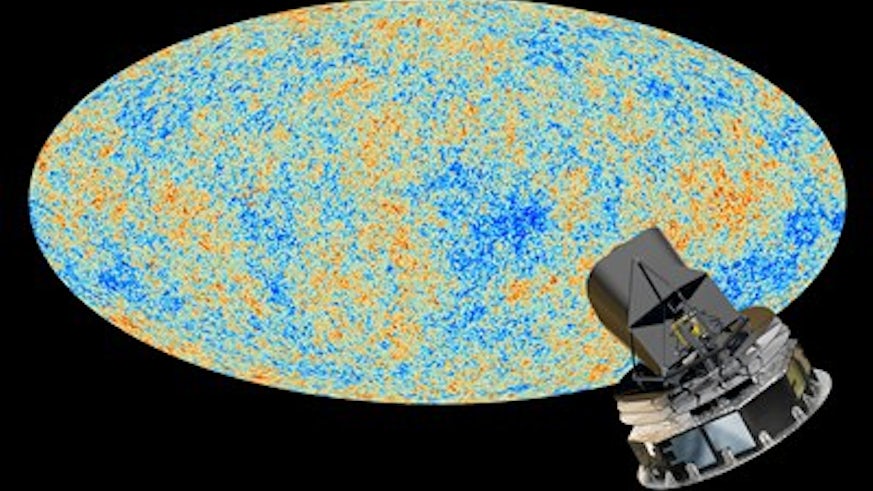Planck satellite receives its last command
24 October 2013

Europe's Planck satellite, which University astronomers have been involved with since its conception, has been turned off after nearly 4.5 years of soaking up the relic radiation from the Big Bang and studying the formation of stars and galaxies throughout fourteen billion years of cosmic history.
Since its launch in 2009, Planck has been mapping the entire sky to observe the afterglow of the Big Bang - the Cosmic Microwave Background. This relic radiation reveals the Universe as it was 380,000 years after it began, and contains clues about the first moments of the cosmos.
"The Planck mission will be celebrated as an outstanding success by the astronomy community," reflects Professor Peter Ade, from the School of Physics and Astronomy. "The satellite fulfilled its task in providing cosmologists with a reference set of 'text book' data on the state of the early Universe which are proving to be an invaluable resource for other astronomers."
The final command to the satellite was sent this afternoon by mission controllers at the European Space Agency's operations centre in Darmstadt, Germany. The instruments and cooling systems were turned off a few days ago, with the final instructions using the last bit of fuel on board and turning off the satellite's transmitter.
While Planck operated successfully in space for over four years, the full history of the mission is much longer. Since its conception, UK scientists have played a key role in the mission, working with colleagues from the rest of Europe and around the world.